MercoPress. South Atlantic News Agency
Tag: WHO
-
Monday, March 29th 2021 - 09:10 UTC
Astra-Zeneca vaccines arrive in Argentina

Over 200,000 doses of the University of Oxford /AstraZeneca covid-19 vaccine arrived in Buenos Aires Sunday through the Covax mechanism, which is promoted by the World Health Organization (WHO) and the Vaccine Alliance Gavi.
-
Tuesday, March 16th 2021 - 09:53 UTC
WHO insists that AstraZeneca vaccine is safe; EU countries suspend jabs on isolated cases of blood clots
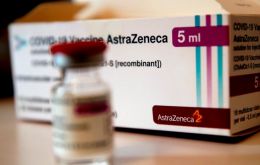
REUTERS – The World Health Organization's director-general said on Monday that systems meant to protect public health were working, as several countries suspended the use of the AstraZeneca's Covid-19 vaccine to investigate possible side-effects.
-
Monday, March 15th 2021 - 09:06 UTC
Brazil becomes second worst Covid-19 country; a time bomb for neighboring countries, WHO reports
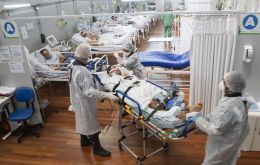
Brazil has surpassed India to become the second worst-hit country from the coronavirus disease (Covid-19) pandemic. With 11,483,370 cases and 278,327 deaths, Brazil is now one spot behind the United States, which is the worst-affected globally with more than 30 million cases and 546,605 deaths, according to figures by WorldMeters.
-
Saturday, March 13th 2021 - 09:26 UTC
Argentina extends the sanitary emergency until 31 December

The Argentine government has extended until 31 December the current sanitary emergency first decreed on 12 March 2020, just days ahead of the social, preventive and mandatory distancing to contain the effects of the pandemic.
-
Saturday, March 13th 2021 - 08:47 UTC
WHO extends emergency approval for Jansen's on shot vaccine, reiterates support for AstraZeneca
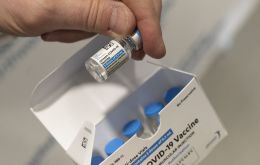
The UN World Health Organization (WHO) said on Friday that it was aware of blood clot concerns linked to “a specific batch” of AstraZeneca/Oxford COVID-19 vaccine, but maintained that to date, no-one has died from any coronavirus vaccine. The development comes after several European countries suspended the rollout of the jab as a precaution.
-
Friday, March 5th 2021 - 08:30 UTC
American Airlines cancels routes from the US to Montevideo and Santiago

American Airlines has extended the suspension and cancellation of numerous international flights including to regions that have not yet been severely impacted by the coronavirus, such as Latin America. The Fort-Worth-based airline says on 10 March that it is cutting summer international capacity by about 10% and April domestic capacity by 7.5% in response to decreasing demand.
-
Tuesday, March 2nd 2021 - 08:53 UTC
WHO warns it is unrealistic to think the pandemic will be done by end of the year

The World Health Organization warned on Monday that it is unrealistic to think the world will be done with the Covid-19 pandemic by the end of the year. WHO emergencies director Michael Ryan said it might however be possible to take the tragedy out of the coronavirus crisis by reducing hospitalizations and deaths.
-
Sunday, February 21st 2021 - 17:14 UTC
Russia reported to WHO first case of avian flu H5N8 transmitted from birds to humans
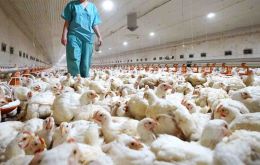
Russia announced on Saturday that its scientists had detected the world's first case of transmission of the H5N8 strain of avian flu from birds to humans and had alerted the World Health Organization.
-
Friday, February 19th 2021 - 07:45 UTC
WHO urges nations producing vaccines to donate them to the Covax scheme
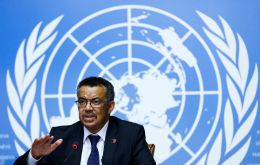
The World Health Organization (WHO) on Thursday urged nations producing Covid-19 vaccines not to distribute them unilaterally but to donate them to the global Covax scheme to ensure fairness.
-
Thursday, February 18th 2021 - 08:44 UTC
PAHO still uncertain about the delivery date of vaccines for the COVAX initiative to benefit 37 countries

With COVAX delivery of new vaccines expected soon in the Americas, Pan American Health Organization (PAHO) Director Carissa F. Etienne called for overcoming barriers to ensure “fair and equitable access.”
